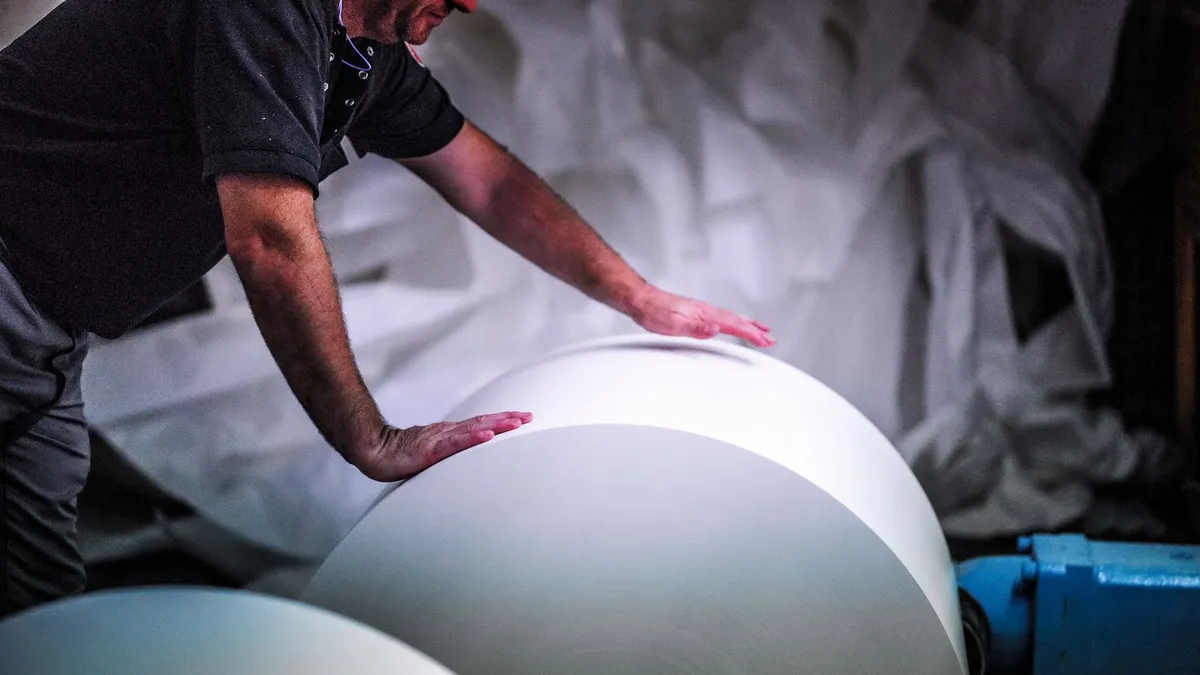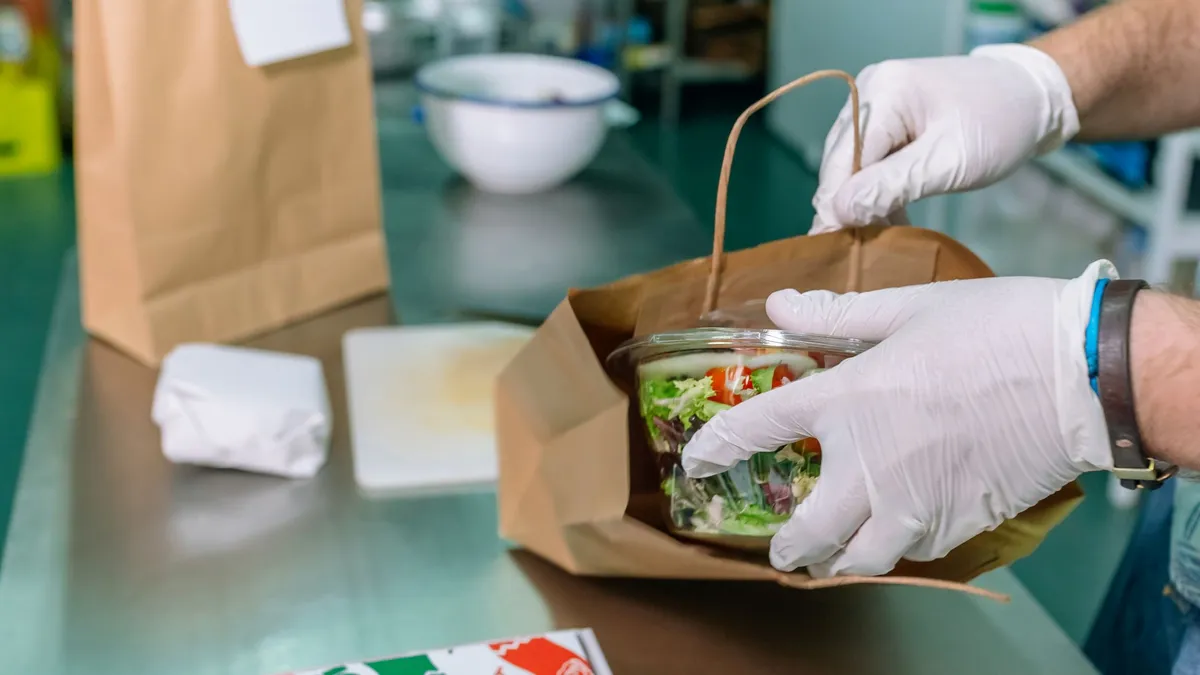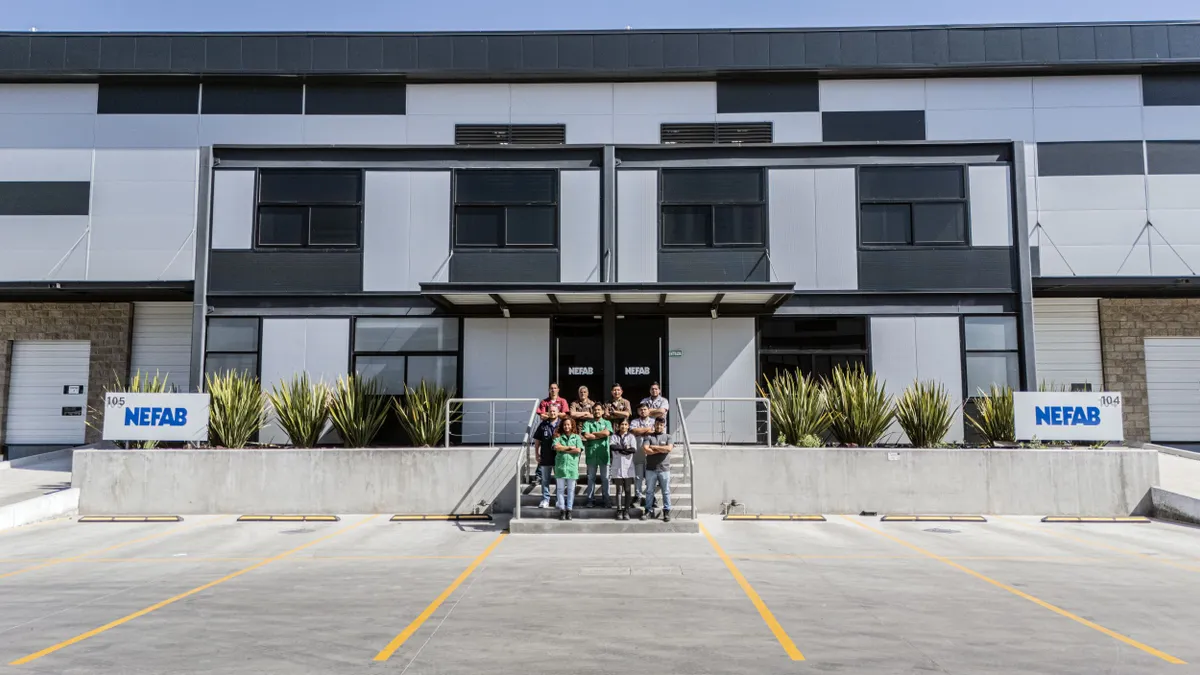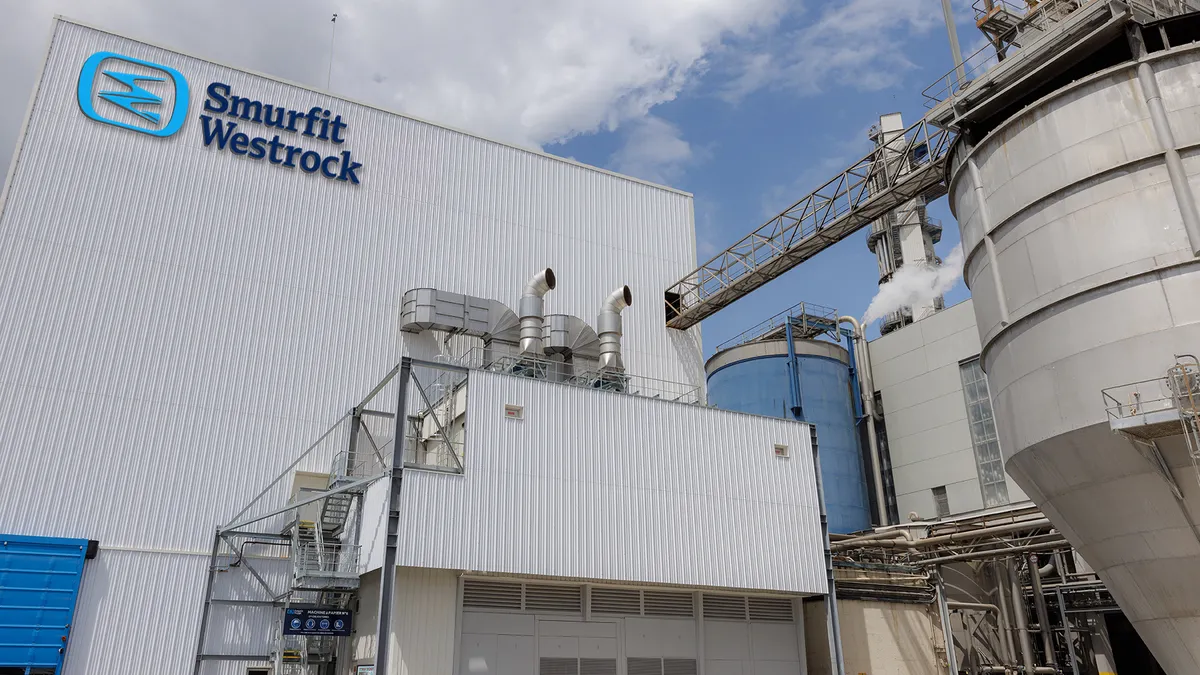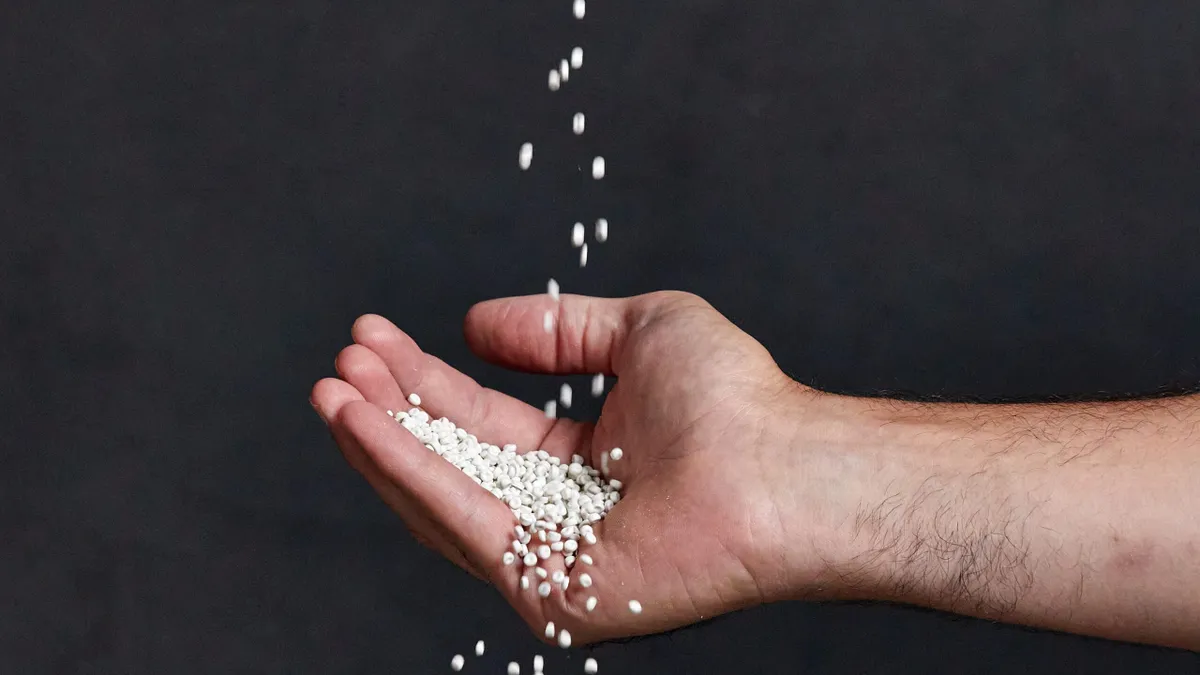An Ahlstrom-Munksjö paper mill in Rhinelander, Wisconsin, faces a class action lawsuit alleging it was involved with contaminating nearby farmland with PFAS, the “forever chemicals.” Chemical supplier 3M is also named in the suit.
Texas-based law firm Baron & Budd filed the federal lawsuit this month that claims Ahlstrom, along with the companies that previously owned the Rhinelander mill, spent decades dumping and spreading paper mill waste on farmland in Oneida County. The millions of pounds of sludge contained high levels of per- and polyfluoroalkyl substances. The mill used the sludge as fertilizer on potato farms, according to the Wisconsin Examiner. This facility was founded as a paper mill in 1903, and Ahlstrom purchased it in 2018.
According to the complaint, the PFAS seeped into the groundwater and contaminated land owners’ private wells, and these sites register some of the nation’s highest PFAS levels. The residents do not have other nearby water sources and therefore have resorted to drinking bottled water due to health concerns with the contaminated water, but they need a longer-term solution, according to Brett Land, attorney at Baron & Budd. State officials began providing some residents with bottled water in January and plan to do so through the end of this year, according to Wisconsin Public Radio.
Contamination concerns
Last year, the U.S. EPA released new health advisories regarding four types of PFAS that replace its 2016 guidance, noting “the levels at which negative health outcomes could occur are much lower than previously understood. The maximum level was 70 parts per trillion in 2016, but the EPA now recommends less than 1 part per trillion.
“The levels that we're seeing out there [in Wisconsin] are higher than any other community that I know of in the U.S. We're seeing levels as high as 40,000 parts per trillion,” Land said. “Filtration of these kinds of chemicals is uncertain at the levels that we're looking at. ... And it’s really expensive. So the people living out in this community are kind of stranded right now and in a really difficult situation.”
The Wisconsin Department of Natural Resources held a public meeting last week in the community near the plant. They announced results from PFAS tests at nearly 100 local homes, showing unsafe PFAS levels in the well water at almost 50 homes. However, the DNR is still trying to determine the contamination cause and has not suggested whether Ahlstrom could be the source.
3M is included in the lawsuit for reportedly providing the mill with the PFAS. “We have evidence that their chemicals are the ones we're finding, and then there's some public record of 3M selling some of these PFAS compounds to the Rhinelander mill,” Land said, adding that other chemical manufacturers potentially could be added to the complaint.
3M did not respond to a request for comment by publication time.
The plaintiffs seek compensation for contamination remediation, bottled water purchases and loss of income, among other things. The lawsuit says Ahlstrom knew or should have known about the dangers of spreading PFAS-contaminated waste on farmlands, and 3M knew or should have known the risks of selling PFAS to companies like Ahlstrom for use in products.
For example, the lawsuit claims some characteristics of PFAS are well known, such as their ability to easily move through water and travel long distances, resist degrading in the environment or bodies and cause health risks. Some of plaintiffs say the chemicals contributed to their high cholesterol levels.
The U.S. Food and Drug Administration says that “exposure to some types of PFAS have been associated with serious health effects,” while the White House noted that PFAS can cause health problems including cancer. This year, the EPA proposed a national standard to address PFAS in drinking water. The White House pointed to funding for projects like the U.S. Department of Agriculture’s research on PFAS in groundwater and livestock as well as investigations into farming practices that reduce the risk of PFAS getting into food crops.
A PFAS report released this year by the National Science and Technology Council says that the “transfer of PFAS from soils into crops and animal feed is a topic of ongoing investigation,” but available data show PFAS gets into agriculture through soil, water or air contamination. Exposure to PFAS-contaminated water or soil can cause chemical accumulation in plants and animals over time, the document said, although more research is needed to understand the phenomenon. The report notes that plants and animals can come into contact with PFAS via sources like “dried paper sludge and recycled cardboard for animal bedding.” The Wisconsin DNR suggests PFAS can be present in fish from contaminated water or dairy products from livestock exposed to the chemicals.
The FDA notes that PFAS chemicals resist grease, oil, water and heat. Decades ago, these qualities prompted paper and packaging manufacturers to incorporate the substances into fiber-based food packaging like hamburger wrappers, pizza boxes, molded fiber bowls and other take-out containers.
Next steps
Ahlstrom owns three other pulp and paper mills in Wisconsin beside the Rhinelander mill, and it manufactures specialty paper products, including food-contact papers, at the plants. For, now the class action lawsuit only contains evidence that PFAS-contaminated waste spreading occurred near the Rhinelander mill, Land said.
Ahlstrom told Packaging Dive it would not comment in depth about ongoing litigation. Addie Teeters, head of marketing communications and public affairs, said via email: “While we are still reviewing the complaint, it appears to focus on activities that are alleged to have occurred prior to Ahlstrom’s acquisition of the Mill in 2018.”
However, Land said that Wisconsin DNR records “show that Ahlstrom continued to land-apply this waste as recently as 2021 ... So Ahlstrom has land-applied [sludge] after they bought the mill,” although a deeper dive into data is needed to determine if the waste contained PFAS.
In 2021, the EPA met with representatives from Ahlstrom and from the American Forest & Paper Association to discuss PFAS discharge from pulp, paper, and paperboard facilities. Ahlstrom said it was phasing out PFAS in its products, with a completion timeline at the end of 2023, according to the meeting notes. It said that for more than a decade it has coated its papers with FDA-approved copolymers; the fluoropolymer coatings reportedly do not contain PFOA, PFOS, or any long-chain PFAS monomers. In response to an EPA question about how many of the products at Ahlstrom’s four Wisconsin mills were made with PFAS-treated paper, the company estimated at the time that it was 10% with a downward trajectory. The paper industry largely is phasing out PFAS in its products, but testing shows the chemicals can linger even after companies switch to safer alternatives.
Land said no firm schedule is set for advancing the case, explaining that “we are going to try to move as fast as we can. But it's litigation, and litigation takes time.” While attorneys await defendants’ response to the complaint they’ll continue to research and gather evidence; they also welcome discussions with any additional Wisconsin residents or farm owners who believe they might have been affected by PFAS-contaminated waste dumping.



